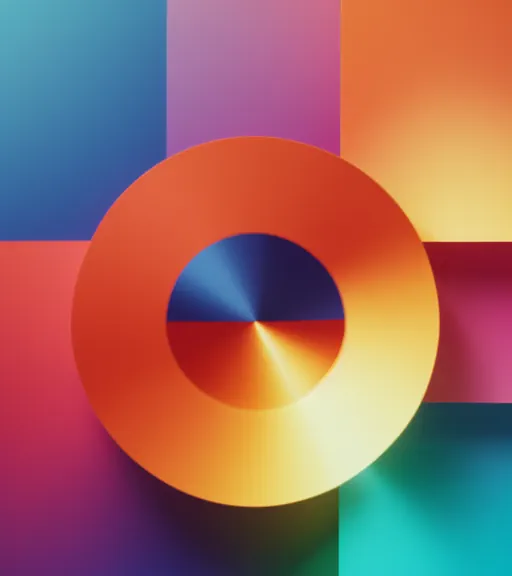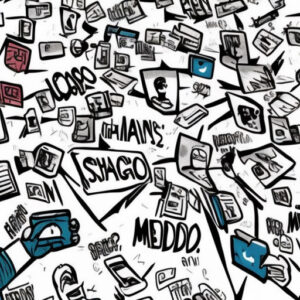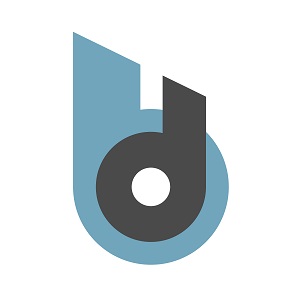Update – October 2024: This post may be outdated, here is a more current one:
Students are on summer vacation, I was too, but I’m back at work. Late August and early September is a strange time on Japanese campuses. I have to go to work, but I don’t really have much to do. I mean, it’s nice, I have time to clean my office, to read, and to write. All the things I want to do more during the rest of the year.
I’ll clean when it’s a bit cooler (my office is air-conditioned, but still).
I’ve been doing some reading. Not as much as I should, but more than I have this Spring, so there is that.
Writing? Well, as always I have grand plans, but as often, procrastination gets in the way.
Lately, there’s a meme with Taika Waititi that is circulating on social media where he says that sometimes writing is looking at a blank page for hours.
Wait, let me find it.
There it is:
I have mentioned it before, but my problem with writing is almost never the blank page. It’s just good old procrastination. When I want to write, I just start reading. Not even books, unfortunately, but things online, which almost always leads me to social media, and if you’re a user, you know what a hard drug it can be.
On the flip side, I feel that I have become quite knowledgeable about the social media landscape.
And even if you’re not terminally online like I am, you may have heard that a certain idiotic billionaire bought Twitter last November and has thrown the social media landscape into a state of chaos in the process.
What was interesting about Twitter was that despite not having that many users (370 million in 2022 – sure that’s a lot, but it’s nothing compared to Facebook, Instagram, WhatsApp, or YouTube: between two and three billion users each) it probably was the most influential network, for both good (it helped topple some autocrats during the Arab Spring, it helped to get real-time information during various emergencies) and bad (Trump, no comment).
Well, Musk is throwing that out of the window, one idiotic move after the other. I’m not going to detail them, they’ve been commented on and analyzed all over the internet if you care.
All you need to know if you haven’t been paying attention is that Twitter is pretty much done for. Anyone who has an ounce of sense has left or is leaving. My accounts are now locked and pretty much dormant. I won’t cancel them for two reasons:
- The optimist in me still hopes Musk gets bored with losing his money and his credibility, and he may sell Twitter to someone who may be able to fix it. It’s very unlikely, though.
- I don’t want anyone to be able to take over my usernames.
With Twitter out of the picture for many people, the social media landscape has been very unstable. Everyone seems to be looking for a replacement, but my belief is that gone are the days when one or two services will dominate the entirety of social media like Facebook and Twitter once did.
Once again, I’m not talking about the number of users, but rather the influence they have on the internet in particular and society as a whole.
Facebook is still there, but – maybe I’m wrong – I feel that its influence is waning. I still use it daily, but that’s mostly to communicate with my offline friends, and we speak less and less about current events and such on the platform. And the algorithm itself seems to push more and more for memes and less and less for news and such.
But as far as a Twitter replacement is concerned, there is still definitely a need for a micro-blogging platform that can do what Twitter did.
At the moment, I see three contenders.

Mastodon and the Fediverse
If you’ve followed me for a while, you know that it has become my preferred choice, and it is the place I call my social media home these days.
There are two reasons for this. First people are just nicer and more positive overall. Not everyone is, but that’s what the mute and block functions are for. People are not really into engaging trolls there, so trolls are very rare overall.
Also, another thing I really really love is that it’s the first time such a social media is not American. I’m just sick and tired of the US being the country by default on social media, and in the Fediverse, it’s much less the case. First, Americans are not the majority (Europeans are), and you can’t imagine how refreshing it is. Some Americans still act like the Fediverse is an American place and all their readers are American but fewer and fewer, I feel. Or is it because I unfollow and mute all the ones I encounter doing it? Not sure.
From a technical and philosophical standpoint, the Fediverse is fascinating for many reasons.
First of all, it needs to be underlined that Mastodon and Fediverse are not interchangeable terms and that Mastodon is just a (major) part of the Fediverse.
The main reason it is such a fascinating and promising place is probably its decentralized nature. No one can own Mastodon or the Fediverse. They belong to everyone. Sure, they technically belong to people running servers that host instances, but that’s thousands and thousands of people. Not one single person or group of people can own the whole thing. In theory, every single user could run their own individual Fediverse server.
I think this is a really important thing in this day and age. The Fediverse can’t be bought by an idiotic billionaire and nobody can break it just because. Also, because it doesn’t need to make money, it can’t be enshittified like many other services are these days (Have you noticed that even Google searches are getting worse and worse?)
There are more reasons.
As you probably know there’s Mastodon. But the Fediverse is much larger than just Mastodon. There’s also Firefish (another microblogging platform that can do many things Mastodon can’t) and PixelFed (an Instagram replacement) and Plemora and Bookwym and MissKey and Friendica and KBin and many more.
And you know what? While all of those services can do different things, they can all communicate with each other.
Imagine you’re on Facebook, and from your Facebook account you can follow (and see in your feed) accounts and posts from Twitter, Instagram, blogs, this newsletter, and more. Not the links to them as it is the case now, but the actual tweets, pictures, posts, and so on.
This is what the Fediverse is. I honestly think that it is, on the one hand, a revolution, and on the other hand, what the internet should have become 20 years ago, right before taking a wrong turn and being overtaken by capitalism.
Is the Fediverse perfect then?
No, unfortunately, it isn’t.
Its main issue, and I’m afraid that it’s the one that could prevent it from ever really becoming mainstream is that there is indeed a learning curve to be able to really use it. We have been used to just signing up for something and being able to use it right away without having to think much beyond choosing a username.
It does take some time to learn how to use the Fediverse and unfortunately, too many people have become too impatient or don’t want to bother and it’s a shame.
I’m quite active on the Fediverse, and you can currently find me mostly there:
- Mastodon: It’s my “serious” account, where I mostly talk about my corner of Japan, art, the climate crisis, and such.
- Firefish: It’s my less serious account where I talk about everything else, but the division between the two is quite porous.
- I have a few more accounts: Kbin (a replacement for Twitter), Bookwyrm (a replacement for GoodReads) but I don’t use them as much, and we’re talking about micro-blogging here. Soon, I’ll also tell you how blogs can become part of the Fediverse, but it’ll be for a future post.

BlueSky
BlueSky started as a side project by Jack Dorsey (Twitter’s founder.) It was supposed to possibly be integrated into Twitter, but Musk’s arrival changed everything.
BlueSky is now totally independent from Twitter and launched a few months ago. It’s supposed to become decentralized one day (like the Fediverse with various servers owned by various people communicating seamlessly with each other), but it hasn’t happened yet. Some people are wondering if it will ever happen. But even if it does, it won’t be able to communicate with the Fediverse, which is a shame.
Honestly, I’m still not sure what to make of it. In terms of content, it seems that it wants to be a Twitter clone (also a more positive one?), but there aren’t enough people on it yet. It’s mostly because you can only join by invitation at the moment. It made sense when it was first launched, but I’m not sure why it’s still the case months later. At first, it may have created a demand and media interest, but now, it has waited too long to open to everyone and I feel that both demand and media interest has vanished because of that.
In terms of its “philosophy,” I’m really not sure what it wants to be (does Dorsey even know himself?) There are all these talks of decentralization, being open source and all. But at the same time, it feels that Dorsey doesn’t really want to leave the “Big Tech” club. And both are antithetic.
Wait and see I guess.
I’ve only been on it for a few days (I finally got my invitation earlier this week) and what I find interesting is that I only follow a handful of people, and I find myself talking quite a bit with them.
You can find me there: BlueSky.

Threads
And then there’s Threads.
Meta launched Threads as an offshoot of Instagram (and not of Facebook, I’m curious about why) less than two months ago with the explicit goal of being a “Twitter killer”.
Being so tightly linked to Instagram allowed it to get a record number of users almost instantly (100 million in one week), but its lack of features made it somewhat uninteresting to use. Also, the way accounts are managed (a Threads account and an Instagram account share important data, such as username and password) makes it non-GDPR compliant and as such illegal and unavailable in the European Union.
I think Meta missed a real opportunity to deal a fatal blow to Twitter had they waited a few months to release a finished product. Sure they’re adding more and more features (it’s finally possible to use it from a computer – and not just a phone – this should have been a day one feature, for example), but many are still missing, and I’m not sure how they’ll manage to regain the traction they had for a few days when it first came out.
One thing I find of interest is that it’s built on the same internet protocols as the Fediverse, which means that in practice, it could become a part of it.
While many Fediverse users are very scared of this (mostly as a knee-jerk reaction against Meta, which is far from being a benevolent company), I see it as an amazing opportunity to allow the Fediverse to enter the mainstream of the internet.
So far, Threads hasn’t federated with anyone yet. Will it happen? No idea.
In terms of my experience, I haven’t really used it much, but it’s the one that feels like Twitter the most (without trolls either, it really seems that they all stayed at Twitter’s), but I rarely stay there more than a few minutes. It really feels that too many things are missing to really make it usable.

Conclusions?
You may have noticed that I’m Fediverse team. I really think it’s the only possible sane future for social media. However, I fully understand that the learning curve new users face is a big hurdle for it to become mainstream.
Bluesky has a lot of potential (and very interesting features the Fediverse doesn’t have, including username portability when changing servers), but I also think that still being invitation-only several months after launching really hurts its prospects and its chances of becoming mainstream one day. Not to mention its unclear direction as far as decentralization is concerned.
Threads could have replaced Twitter almost in a heartbeat when it launched. I mean it, many people don’t think one internet product can replace another one instantly, but it did happen before. Many people seem to forget that Digg was a major player once, and it became irrelevant almost overnight to be replaced with Reddit.
However, I really believe that Threads launched too soon as an unfinished product. Meta should have waited until it was a bit more fleshed out.
So, in conclusion, for better or worse, I don’t think that one service in particular will replace Twitter in the foreseeable future. Twitter will continue its long descent into becoming irrelevant. The Fediverse, BlueSky, and Threads will continue competing with each other, but will probably end up catering to different niches of people and interests.
I also think that it’s impossible to predict what the next big thing on the internet will be. A totally unexpected and unforeseeable event will make it happen. Maybe it will be one of these three. It also could be a fourth one that I have totally overlooked or that doesn’t even exist yet.
Discover more from liminal web
Subscribe to get the latest posts sent to your email.


